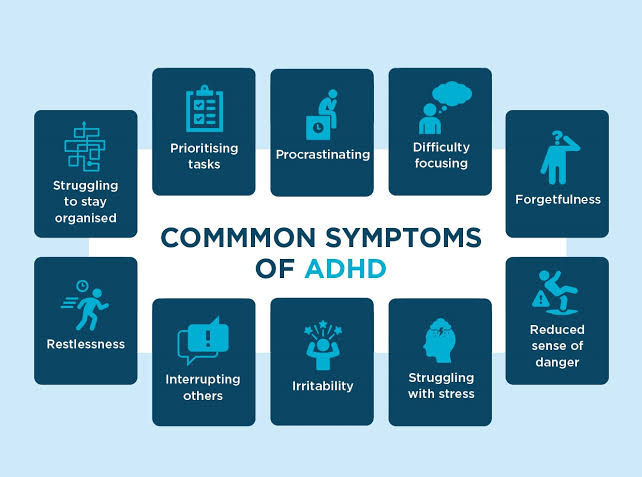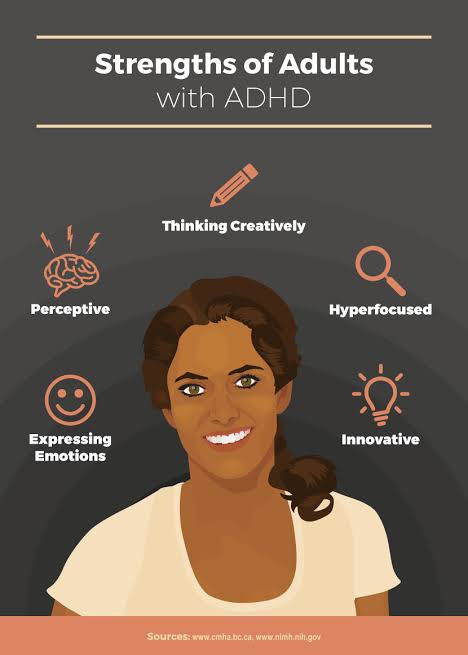Understanding ADHD and Communication Difficulties in Adults.
- Sounderic

- Aug 2, 2023
- 5 min read
Updated: Aug 4, 2025
Attention Deficit Hyperactivity Disorder (ADHD) is a neurodevelopmental disorder commonly associated with childhood, but it can persist into adulthood for many individuals. In fact, recent studies estimate that about 2.5%–5% of adults globally live with ADHD, including many undiagnosed individuals in India.
ADHD is often associated with symptoms such as hyperactivity, inattention, and impulsivity, communication difficulties in adults with ADHD are frequently overlooked—despite their major impact on personal, social, and professional life.
In this blog, we explore how ADHD affects communication in adults, what causes these difficulties, how they manifest, and strategies to improve speech and social interaction through therapies and support systems.
What Is ADHD in Adults?
ADHD in adults often looks different than in children. Common symptoms include:
Inattention (e.g., forgetfulness, distractibility)
Impulsivity (e.g., interrupting, acting without thinking)
Hyperactivity (e.g., restlessness, excessive talking)
Despite its early onset in childhood, ADHD often goes undiagnosed until adulthood. It can affect every area of life—especially communication and relationships.
Why Does ADHD Affect Communication?
Communication isn’t just about speaking and listening—it involves attention, memory, social awareness, emotional regulation, and executive functioning. Adults with ADHD often struggle in one or more of these areas due to neurological and cognitive differences. Here's a breakdown of the key reasons:
Neurological Differences
ADHD is linked to differences in brain structure and functioning. Certain areas of the brain responsible for attention, impulse control, and communication may not function optimally, leading to speech difficulties.
Executive Dysfunction
Executive functions are the brain’s self-management skills—like a personal assistant for your thoughts and behavior. People with ADHD often have executive dysfunction, affecting:
Planning and organizing speech: Difficulty in forming a coherent narrative or staying on topic.
Self-monitoring: Trouble recognizing when they’re dominating a conversation or not making sense.
Initiation and inhibition: They may struggle to start a conversation or stop themselves from interrupting.
Shifting attention: Abruptly switching topics or getting sidetracked during conversations.
This leads to disorganized, impulsive, or off-topic speech that can confuse listeners or strain relationships.
Working Memory Deficits
Working memory is the brain’s ability to hold and manipulate information temporarily. It plays a key role in:
Following a conversation
Remembering what the other person said
Structuring a reply that makes sense
When working memory is impaired (as it often is in ADHD), a person may:
Lose track of what they were saying mid-sentence
Repeat themselves
Forget key details the other person shared
Struggle to tie ideas together logically
This can result in fragmented or confusing communication.
Emotional Dysregulation
People with ADHD often experience strong emotions that they have difficulty managing. During conversations, this can lead to:
Irritability or frustration if they feel misunderstood or interrupted
Anxiety or nervousness that disrupts their ability to express thoughts clearly
Overexcitement that causes fast, tangential speech or oversharing
Withdrawal if they fear judgment or embarrassment
These emotional reactions can make communication unpredictable or strained and may lead to avoidance of important discussions.
These factors collectively make communication more difficult, inconsistent, or inappropriate.
Common Communication Difficulties in Adults with ADHD
Here are some key areas where communication challenges arise:
Verbal Impulsivity
Adults may interrupt, talk over others, or blurt out thoughts before thinking. This can harm relationships and workplace rapport. They have difficulty controlling their impulses, leading to interruptions, talking over others, and difficulty waiting for their turn to speak.
Inattentive Listening
Adults with ADHD often struggle with active listening, therefore, maintaining focus during conversations can be a significant hurdle for them and can lead to missing important details. They are often perceived to be inattentive or disinterested in social interactions.
Disorganization in Speech
Many adults with ADHD may have trouble organizing their thoughts and expressing them coherently. They may jump from one topic to another, rambling, making it difficult for others to understand them.
Working memory deficits
Individuals with ADHD often struggle with working memory, making it difficult for them to recall important information during a conversation. This often leads to losing track of points mid-sentence or repeating oneself frequently.
Hyperactivity
Hyperactivity in adults with ADHD can manifest during communication as excessive fidgeting, restlessness, and a tendency to speak quickly and excessively.
Emotional/Behavioral Impact
Anxiety, frustration, or embarrassment around communication can cause individuals to withdraw or avoid conversations.
Impact on Personal and Professional Life
Communication difficulties can affect many areas:
Relationships: Partners or friends may feel ignored, talked over, or misunderstood.
Workplace: Missed cues, instructions, or miscommunication can affect performance and team collaboration.
Self-Esteem: Persistent communication problems may cause shame, isolation, or anxiety, increasing risk for depression or social withdrawal.
Diagnosis and Assessment
ADHD and communication disorders are typically diagnosed by a multidisciplinary team that may include:
Psychologists or psychiatrists
Speech-language pathologists (SLPs)
Neurologists or general physicians
A comprehensive assessment evaluates behavior, communication patterns, attention, memory, emotional regulation, and coexisting disorders like anxiety or learning disabilities.
Strategies and Therapies for Better Communication
While ADHD is a lifelong condition, there are several strategies and interventions that can help adults with ADHD improve their communication skills and enhance their interactions with others:
1. Speech-Language Therapy
SLPs work with adults to build:
Active listening skills
Sentence organization
Social pragmatics (turn-taking, eye contact)
Self-monitoring and conversation pacing
2. Behavioral Interventions
Techniques such as:
Cognitive-Behavioral Therapy (CBT) for managing thought patterns
Mindfulness and meditation for impulse control
Journaling or reflective listening practice
3. Practical Supports
Visual organizers (e.g., mind maps, flowcharts)
Digital tools (reminders, to-do apps, speech note apps)
Checklists or conversation prompts
4. Environmental Adjustments
Educating coworkers and family members
Creating low-distraction spaces for conversations
Providing extra processing time during discussions
5. Medication
Stimulants and non-stimulants may be prescribed as part of a multimodal treatment plan, particularly when ADHD symptoms severely affect daily function.
Tips for Adults with ADHD
Use notes or bullet points during important conversations
Practice active listening techniques (e.g., paraphrasing)
Schedule conversations when you're calm and focused
Avoid multitasking during dialogue
Tips for Caregivers, Friends & Employers
Be patient and avoid interrupting
Use simple, direct language
Confirm understanding ("Can you repeat that to be sure?")
Encourage breaks or follow-ups if communication becomes overwhelming
When to Seek Professional Help
Consider working with a speech-language therapist if:
You frequently interrupt or lose track of conversations
You find it hard to stay on topic or express yourself clearly
Social or work relationships are being affected
You experience frustration or anxiety while speaking
Frequently Asked Questions (FAQs)
1. What are the most common communication problems in adults with ADHD?Inattentive listening, disorganized speech, impulsivity, forgetfulness during conversations, and difficulty interpreting nonverbal cues.
2. Can ADHD cause speech or language disorders?
While ADHD itself isn’t a speech disorder, its cognitive and behavioral symptoms can significantly impair communication.
3. How is communication therapy different for adults with ADHD?
It focuses more on executive functioning, organizing thoughts, self-regulation, and social pragmatics compared to traditional articulation or language therapy.
4. How can loved ones best support someone with ADHD?
By being patient, offering structured support, and encouraging therapy and open communication.
Final Thoughts
ADHD in adults can deeply affect day-to-day communication, but awareness, early intervention, and consistent support can make a significant difference. With the right strategies and professional guidance, adults with ADHD can build stronger connections and communicate more effectively.
Get Support with Sounderic
Sounderic provides online speech therapy for adults and children dealing with communication difficulties, including those related to ADHD. We offer individualized sessions designed to help you speak with confidence and clarity.
📞 Get in touch with us on WhatsApp or
📅 Schedule a consultation here: Speech therapy for ADHD
Follow Us for More
👪 Join our parent community: “Speech Therapy Guide for Parents” (19,000+ members)
Read more:
Reference:
https://www.psychiatry.org/patients-families/adhd/what-is-adhd
https://www.nimh.nih.gov/health/topics/attention-deficit-hyperactivity-disorderadhd/index.shtml
https://www.additudemag.com/communication-skills-adults-adhd/
https://www.mayoclinic.org/diseases-conditions/adult-adhd/symptoms-causes/syc-20350878
https://www.helpguide.org/articles/add-adhd/adult-adhd-attention-deficit-disorder-in-adults.htm/





